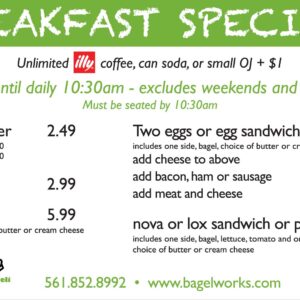
Work superlatives are words or phrases that describe something as being the best, most impressive, or most extreme in a particular category. They are often used to emphasize the importance or significance of something, or to make it stand out from the ordinary.
Work superlatives can be used in a variety of contexts, including:
- Job descriptions: To describe the ideal candidate for a particular position.
- Performance reviews: To recognize and reward employees for their outstanding work.
- Marketing materials: To promote a product or service as being the best in its class.
- News articles: To highlight the most important or newsworthy events.
When used effectively, work superlatives can be a powerful tool for communication. They can help to create a sense of excitement and urgency, and they can motivate people to take action. However, it is important to use work superlatives sparingly, as overuse can lead to them losing their impact.
FAQs on Work Superlatives
Here are some frequently asked questions about work superlatives:
Question 1: What are work superlatives?
Work superlatives are words or phrases that describe something as being the best, most impressive, or most extreme in a particular category. They are often used to emphasize the importance or significance of something, or to make it stand out from the ordinary.
Question 2: How can I use work superlatives effectively?
Work superlatives can be used effectively in a variety of ways, including:
- In job descriptions, to describe the ideal candidate for a particular position.
- In performance reviews, to recognize and reward employees for their outstanding work.
- In marketing materials, to promote a product or service as being the best in its class.
- In news articles, to highlight the most important or newsworthy events.
Question 3: What are some examples of work superlatives?
Some examples of work superlatives include:
- “Best-in-class”
- “Top-performing”
- “Most innovative”
- “Most effective”
- “Most reliable”
Question 4: When should I avoid using work superlatives?
Work superlatives should be used sparingly, as overuse can lead to them losing their impact. Additionally, work superlatives should not be used to make exaggerated or unsubstantiated claims.
Question 5: What are some alternatives to using work superlatives?
Some alternatives to using work superlatives include:
- Using specific data or metrics to support your claims.
- Using comparative language, such as “better than” or “more effective than.”
- Using descriptive language to paint a picture of the qualities you are trying to convey.
Question 6: How can I avoid using work superlatives in a misleading way?
To avoid using work superlatives in a misleading way, be sure to:
- Only use work superlatives when they are accurate and justified.
- Be clear about the criteria you are using to make your claims.
- Avoid making exaggerated or unsubstantiated claims.
Summary: Work superlatives can be a powerful tool for communication, but they should be used sparingly and with care. By following the tips above, you can use work superlatives effectively to emphasize the importance or significance of something, or to make it stand out from the ordinary.
Transition to the next article section: Now that you know more about work superlatives, you can start using them effectively in your own writing and communication.
Tips on Using Work Superlatives
Work superlatives can be a powerful tool for communication, but they should be used sparingly and with care. Here are five tips to help you use work superlatives effectively:
Tip 1: Use work superlatives to emphasize the most important or significant aspects of something.For example, you might say that a particular product is the “best in its class” or that a particular employee is the “top performer” on their team.Tip 2: Be specific about the criteria you are using to make your claims.When you use a work superlative, be sure to specify the criteria you are using to make your claim. For example, you might say that a particular product is the “most innovative” because it has a number of unique features that set it apart from the competition.Tip 3: Avoid making exaggerated or unsubstantiated claims.It is important to be honest and accurate when using work superlatives. Avoid making claims that you cannot support with evidence.Tip 4: Use work superlatives sparingly.Overuse of work superlatives can lead to them losing their impact. Use work superlatives only when they are necessary to emphasize the importance or significance of something.Tip 5: Consider using alternatives to work superlatives.In some cases, it may be more effective to use alternatives to work superlatives. For example, instead of saying that a particular product is the “best in its class,” you could say that it is “a top performer” or that it “offers a number of unique features.”
Conclusion
Work superlatives are a powerful tool for communication, but they should be used sparingly and with care. By following the tips outlined in this article, you can use work superlatives effectively to emphasize the importance or significance of something, or to make it stand out from the ordinary.
When used effectively, work superlatives can help to create a sense of excitement and urgency, and they can motivate people to take action. However, it is important to remember that work superlatives should only be used when they are accurate and justified. Avoid making exaggerated or unsubstantiated claims, and be sure to use work superlatives sparingly so that they retain their impact.
By using work superlatives wisely, you can communicate more effectively and persuasively. So next time you are writing or speaking, consider using a work superlative to emphasize the most important or significant aspects of your message.



